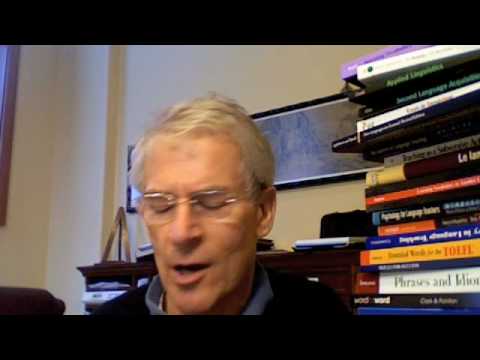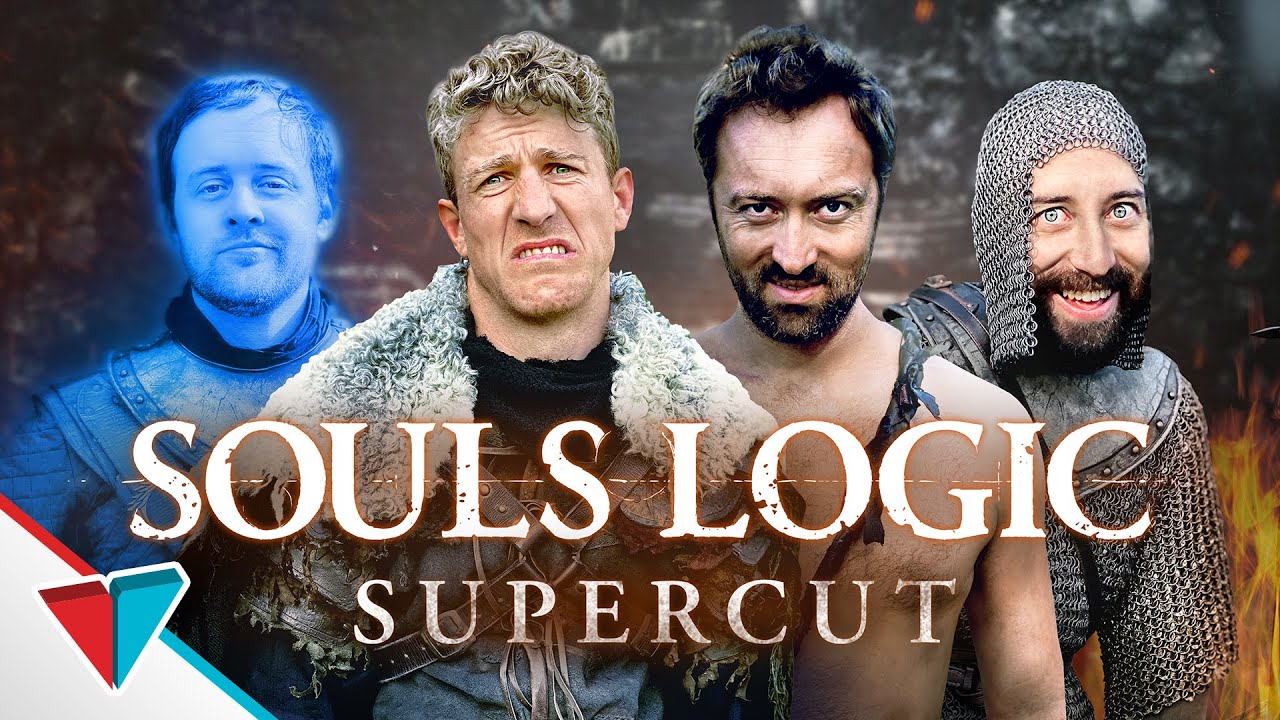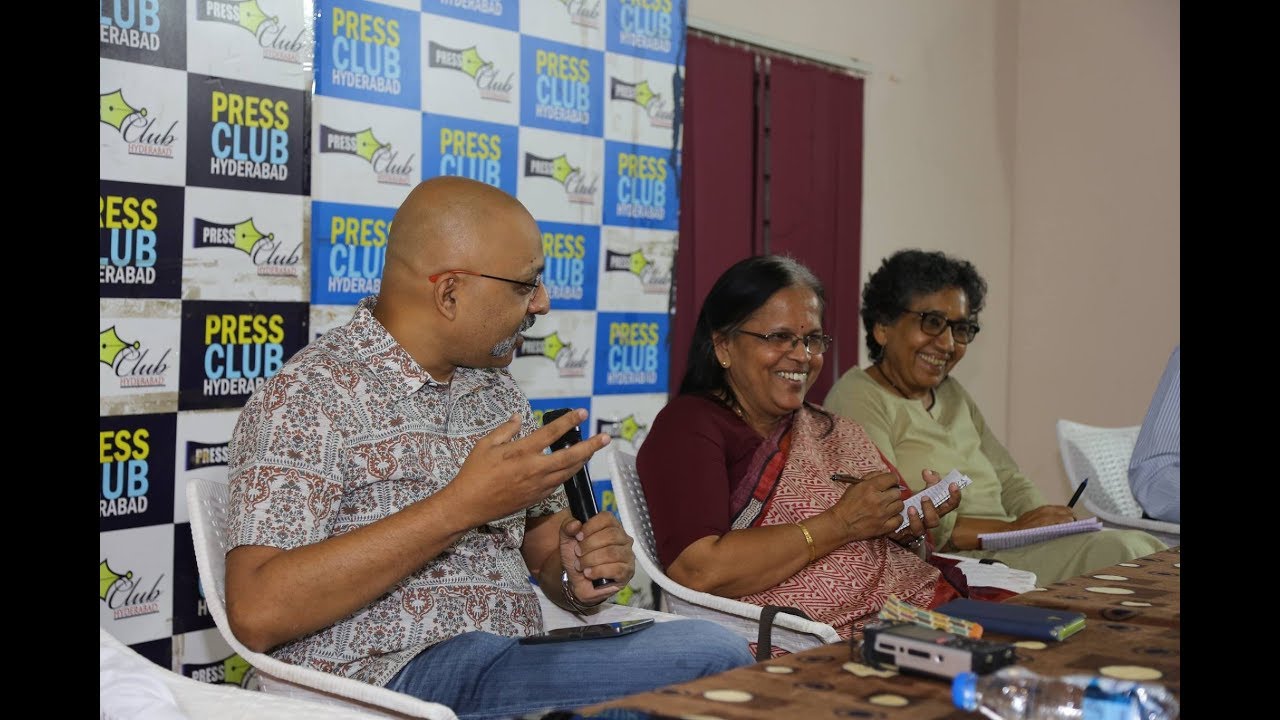Steve Kaufmann – lingosteve
Stephen Krashen make more sense than a library of books on language acquisition and ESL teaching methodology. LingQ follows Krashen’s precepts with a few different features.
Timelines:
1:13 My useless pile of language learning books.
3:04 Stephen Krashen.
3:45 The acquisition–learning hypothesis.
4:13 The Natural Order hypothesis.
5:42 The Monitor hypothesis.
6:29 The Input hypothesis.
8:19 The affective filter hypothesis.
9:14 LingQ’s contribution to Krashen’s precepts.
Visit https://www.LingQ.com
My Blog: http://blog.thelinguist.com/
My Facebook Page: https://www.facebook.com/lingosteve
My Twitter: https://twitter.com/lingosteve
Follow the new LingQ channel: https://goo.gl/WVnzRS
Follow “Steve’s Cafe” channel: http://www.youtube.com/c/SteveKaufmann .




I do believe that people unconsciously acquire a language. Even if they don't want to…if they are surrounded by it, they will learn things. I have heard of people who were imprisoned and learned a language because the prison guards spoke it. if you are around a language you will learn, you have no choice in the matter.
@callmemrmilkman I usually only study one language at a time, and I spend about one hour or so a day, usually listening or reading.
@nblumer well-said.
I agree with most of what you say, I was a fluent German speaker and took two routes to learn the grammar; the first route was grammar tables and rote learning rules, the second was learning sentence patterns. I absorbed the grammar through sentence patterns not the rules. I am now a passable Mandarin speaker and have not concerned myself with grammar at all. I have got lots of books on German and Chinese such as idioms and 3000 verbs and synonyms, all of which are totally useless
can you add the Romanian language in LingQ when you become good at speaking it
Hate to burst your bubble, but almost all of Krashen's Five Hypotheses a.k.a. MANIA (Monitor, Acquisition, Natural Order, Input, and Affective filter) have been largely and systematically refuted in Second Language Acquisition research. In the end Krashen's hypothesis were not sufficient to describe language acquisition and studies show that learning does take place, output is important if nor crucial, and input (comprehension) is not sufficient to measure proficiency. Read Swain, Ellis, Long…
@pstandlee Different hypotheses, different research conclusions, no refutation, and the controversy continues. I have read Swain and Ellis, and find that Krashen rings 80% true, and truer than most of what the rest of the "SLA community" has to say. Read my blog post on the subject today at The Linguist on Language.
@zzukizzz No, you're right. Nothing is proven in second language acquisition, but I don't think "refute" means "proved" either. However, study and theories in cognitive and in socioculture theories counter Krashen's claim that comprehensible input is the only "necessary and sufficient" condition for language acquisition. Swain's Output Hypothesis (1985, 1995, 2005), Long's Interaction Hypothesis (1990), Nick Ellis Emergent grammar work (2005, 2006) all work on but move past Krashen's hypotheses.
@zzukizzz I agree that if the concepts of Krashen's models work for you, in a particular context, under particular situations, with particular needs, that's great. We should never dissuade language learners from finding the strategies that work best for them. My problem is that Krashen's models cannot be generalized because to a singular path. Check Krashen's claims. Such generalizations unnecessarily confining. Thanks for an open and interesting discussion 🙂
Speaking of language, you keep saying that you "hardly recommend these books," which means that you do not recommend them, or that you can barely recommend them. I believe the word you are looking for is "heartily" meaning 'from the heart,' and pronounced heart-i-ly (3 syllables). By way of example, should you find this correction is unwelcome, I would be 'heartily sorry for having offended thee'. -cheers
@thedoorisunlocked It seems to me that you have an emotional attachment to the word HARD! Have you ever heard of Khatzumoto and his way of learninr Japanese?
Don't be so pretentious . I am a teacher! Oooo, man , language teacher . You know what is funny about that ? I am also a language teacher . I am teaching myself German language at the moment .
@brindlebriar Fault finding personality ?
So my question to you Steven is, forget about the accent, is it possible to learn perfect grammar?? I don't care about having an accent, I care about the grammar, I want to know if I'll ever learn the grammar 100% and I'll be able to lead a normal life, I can cope with not having a natural accent. I see people that have been speaking english for like 20 years and still make mistakes, it's very offputting, it's like embarrassing, to see that that's where I'm going to end up
@tlovehater Possible but not likely. I do not strive for perfection but just constant improvement.
@lingosteve Then how do you explain Linus Torvalds, Joseph Conrad or Nouriel Roubini??
@tlovehater Some do achieve native like ability in writing and even speaking. but these are few, and I do not consider it a realistic goal, although something to strive for.
Fine vid!
"Every complete unknown language is a kind of acoustic mask; as soon one learns it, it becomes a face, understandable and soon familiar".
Quote from Elias Canetti, Nobel prize winner for Literature. He was Bulgarian, lived long time in England but wrote in German language. As novel and play writer he used "acoustic masks" to create characters. Every person had a special vocabulary and accent. Drama (anxiety) begins where masks take shape. Living language create new (strange) forms.
@tlovehater Check also Khatzumoto from "All Japanese All the Time".
@pstandlee How many of those who supposedly refuted Krashen, have a stake in the status quo (consciously or unconsciously)? I taught English for about 7 years and it sucked. I started using Krashen's ideas a few years ago in my classroom and it was like night and day. Maybe you're one of those kinds of people who need a scientific study to 'prove' to you that an organic orange tastes better than an non-organic orange? Krashen is da bomb, no matter what the supposed 'experts' say.
@pstandlee How many of those who supposedly refuted Krashen, have a stake in the status quo (consciously or unconsciously)? I taught English for about 7 years and it sucked, then I started using Krashen's ideas a few years ago in my classroom and it was like night and day. Maybe you're one of those kinds of people who need a scientific study to 'prove' to you that an organic orange tastes better than an non-organic orange? Krashen is da bomb, no matter what the supposed 'experts' say.
@tlovehater you already have a good level of english. if you are dead-set on getting "perfect" or native-level grammar, I'm sure you can do it provided you put forth the necessary effort. a good way would be to read some novels, and while reading pay special attention to how sentences are worded. read a novel per week or month, and you'll find that after 1-3 years you won't be making anymore grammar errors or at least you'll be making them with the same frequency as a native speaker would
I have a good memory for verbs and I can conjugate verbs very easily including obscure verbs. I don't mention this to boast it is just the way my mind works. However, I do agree that vocabulary is MORE important that grammar. I have studied Italian on and off for some time and while I am a master of all the tenses. I can only string together a 4 or 5 word sentence because my vocabulary is so limited. Learning nouns and adjectives is the best way to start increasing your vocabulary.
There are victorys of spirit and soul, sometimes even when you lose you win!
Ich kann diese video setzen in meine video.
Ich werden nicht schreiben um die du.
Ayn Rand wrote books in English. She had a pretty thick accent but her usage of English was perfect. Even in interviews, I can't pick out even a tiny mistake.
Of course it is possible.
of course it is, I speak my second language just as good if not even better than my first(i even think in my second language sometimes) and i have a friend who is almost as good as me at his second language.
I espouse to Krashen's theories. Function over form is best. Syntax should take a backseat to real exchanges of meaning in the classroom. Students really do need to practice the language outside the school setting too. I took French in high school. It gave me the impetus to want to learn it on a deeper level. I subscribed to French newspapers, TV Cinq, etc. That's how I really learned the language. BUT, syntax is important. It gave me a foundation that I needed when learning Italian and Spanish.
I have no idea what that means.
One of the reasons "experts" turn down Krashen's theory is the iminent textbooks industry bankrupt. His hypothesis just set aside all those boring and dull books, which give slight contribution when it comes to language acquisition.
I fully agree with Mr. Kaufmann in his emphasis on meaningful, comprehensible input, while also recognizing an ancillary role for grammar, flashcards (SRS), speaking and other such things to help with making elements of the language to become more noticeable to us.
I slowly realized these things over the course of learning several languages. Before that, I was running on assumptions that I had learned from teachers (and just general beliefs held by many people in society) that grammar and textbook study would lead me to mastery of a language. I wish I could go back and do it all over again, applying what I now know. I feel I can learn a language 5 to 10 times faster with something like LingQ than I was able to do with my earlier approach.
thank you so much
7:40 This is true if you want to work it that way, but a child does not work like that for the most part. He/she learns the language and just adds more vocabulary once it is easy to speak the language. A child basically acquires the languages first instead of left braining it.
Hi Steve, Great work you are doing here on Youtube! I am very impressed. I have often thought of how similar (or different) the teaching methods are of our relative subjects. I am trying to dispel a few myths and make it easier for people to learn Math (s). Missed the pianist in the background though on this one 😉 Keep up the good work! Ciao!
Does anybody know what book he's talking about @9:00?
-Hmm id love to buy that book.
So, this method is the only one to acquire a language? How can we get those comprehensive inputs and speed up the process?
Thank you Stephen, thank to your videos I got the right maidframe yo keep my motivation up and getting my C2 in English
Luis